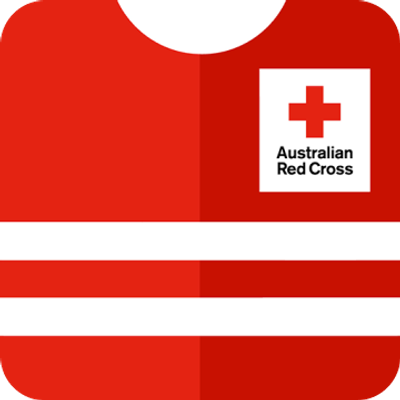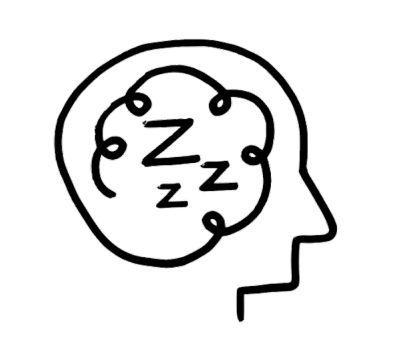How can natural disasters impact my mental health?
Whether you experienced a natural disaster last week, last year or in the last three years, it’s understandable if you feel like you’re stuck on a rollercoaster of emotions. Healing and rebuilding can take a long time and will look different for everyone.
Oftentimes, the uncertainty of not knowing what’s going to happen or how things will get better can cause the most stress.
It doesn’t matter what your experience has been, the way you’re feeling is valid. Even things like thinking about climate change or anticipating extreme weather can cause feelings of anxiety.
What matters most is that you're being kind and compassionate to yourself, understanding your emotions, and recognising when you need support.
On this page, you’ll find information on:
- How you might be feeling mentally and physically
- How natural disasters can impact existing mental health challenges
- Signs things might be becoming too much.
Scroll down to learn more.
How you might be feeling
When a natural disaster causes major damage to your home, vehicle or business, it's normal to feel upset and overwhelmed by the recovery process. Tasks like finding somewhere to stay, organising repairs, and filing insurance claims can be time-consuming, stressful, and are often made harder by complicated emotions like grief.
You may not think you’re experiencing grief, but remember - grief isn’t limited to losing a loved one.
You can grieve:
- The loss of people you weren’t close to or directly connected with
- Nature and wildlife
- Your home or your job/school
- Your routine
- The wellbeing of your community
- The future you imagined.
There isn’t a right or wrong way to react to natural disasters because there isn’t a right or wrong way to cope with the stress, grief and trauma they can cause.
Below, we’ve listed common ways you might be thinking, feeling, and acting in the days, months, and years following a natural disaster or extreme weather event.

Keep in mind that you may experience just one, some or all of these feelings at any point in your journey. They can come in waves and vary in levels of intensity.
Some days, you may feel like you’re handling everything okay but your body could be showing you signs that you’re not coping as well as you think.
- Common physical symptoms you might be experiencing
- Brain fog and fatigue
- Poor concentration and memory problems
- Sleep problems such as difficulty falling or staying asleep
- Nightmares
- Feelings of unease or jumpiness
- Changes in appetite
- Headaches, stomach pains, and frequent colds
- Hair loss and skin irritations
- Chronic health problems such as cardiovascular disease, high blood pressure, diabetes, and autoimmune disorders.
While it is normal to experience these stress responses if you’ve experienced a natural disaster, it’s important to find ways to manage your stress in order to protect your mental health and wellbeing.
Natural disasters and existing mental health challenges
Even if you haven’t struggled with your mental health in the past, experiencing a natural disaster can sometimes lead to mental health conditions like:
- Anxiety
- Depression
- Post-traumatic stress disorder (PTSD).
If you do have existing mental health challenges, experiencing a natural disaster can make those challenges more difficult.

Because of the isolation often experienced in the weeks, months, and years after a natural disaster or extreme weather event, we typically see a rise in:
- Relationships and loneliness
Natural disasters can put a strain on relationships because of the heightened stress and emotions that can come in the aftermath. While you may be struggling to cope with your own emotions, you might also be struggling to support others.
If you’re separated from your usual support networks and communities, you may find it difficult to maintain connections with loved ones and adjust to the loss of your usual support systems and routines.
- Domestic and family violence
While any type of relationship can be impacted, natural disasters can cause particular concern for women and children experiencing domestic and family violence.
This is because natural disasters can:
- Create more opportunities for abusive behaviour like coercive control
- Cause abuse and violence to escalate
- Prevent you from accessing support
- Make it difficult to escape safely.
If you’re already experiencing domestic and family violence and would like more information and support options, visit our DFV help page here.
- Substance misuse
Sometimes, people turn to alcohol and drugs to cope with the stress and traumatic impacts of natural disasters.
While you may feel temporary relief from alcohol and drugs, relying on them to cope with stress can make mental health conditions like anxiety and depression worse and lead to dependency.
Click here to learn more about substance misuse and where you can find support.
When to reach out for support
You can reach out for support no matter how well you think you're doing. However, it's especially important to reach out if you’re finding it hard to manage daily life.
Here are some of the signs that things might be becoming too much:
- Withdrawing from friends and family
- Losing interest in activities
- Feeling guilty and regretful
- Experiencing panic attacks
- Ruminating and worrying about the future
- Noticing intrusive thoughts
- Having flashbacks or dreams that make it feel like you’re reliving the event
- Struggling to sleep or experiencing insomnia
- Using alcohol and drugs to cope
- Getting urges to self-harm
- Feeling hopeless and having thoughts of suicide.
Even though it’s normal to experience stress in the aftermath of a natural disaster, you don’t have to live with those feelings forever and you don’t have to deal with them on your own.
- If things are feeling a bit too much, you can:
- Learn tips for talking to someone you trust
- Book an appointment with a GP to talk about getting a Mental Health Treatment Plan
- Contact a mental health support service.
If those options don’t feel right for you, you may find it helpful to learn strategies to help you manage stress and cope with uncertainty on our short-term help page.
You can also always contact Lifeline via phone (13 11 14), text, and chat 24 hours a day, 7 days a week.
We’re here to listen to whatever it is you're going through.
Click here to download, save, or print our natural disasters fact sheet.






